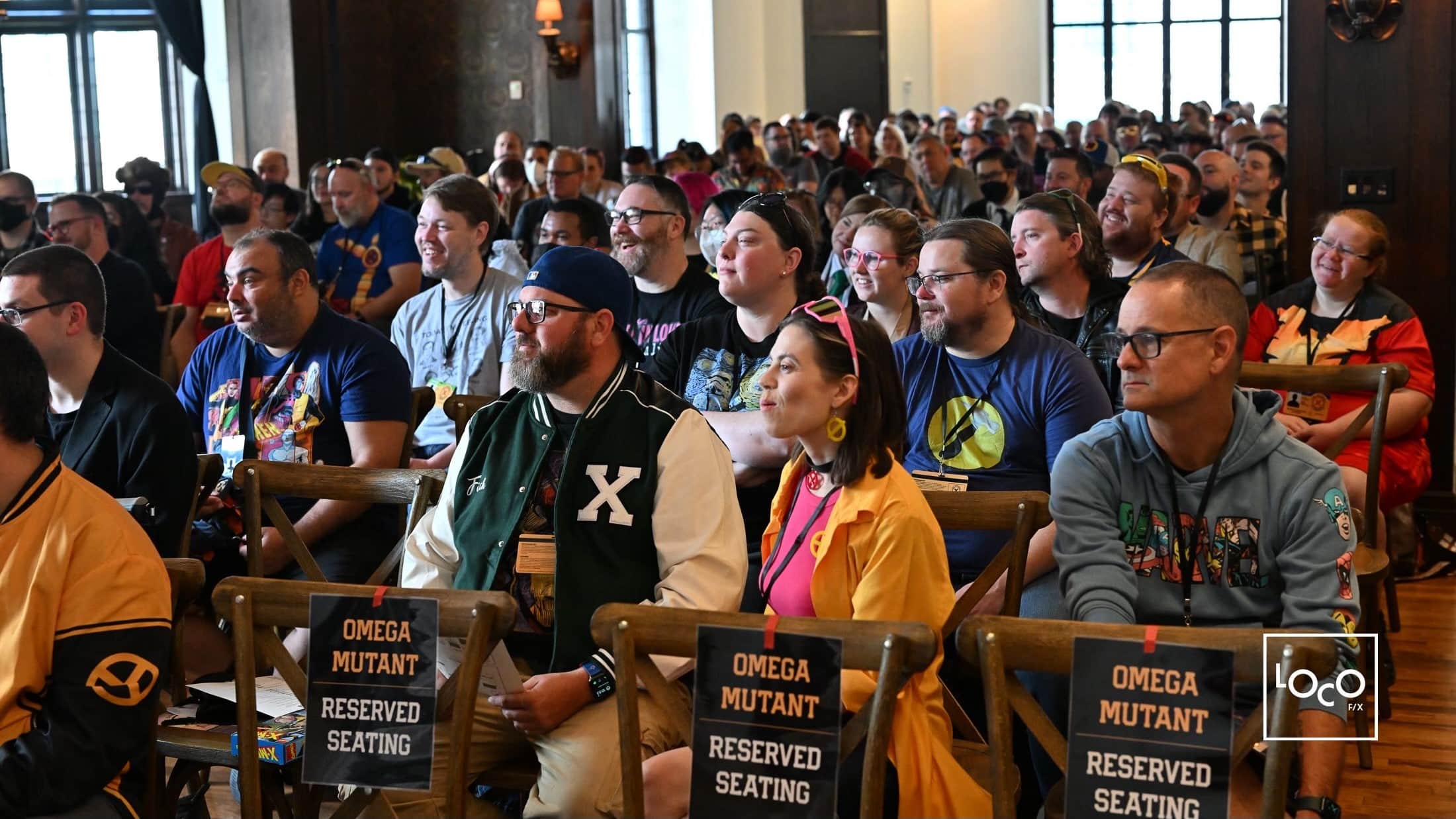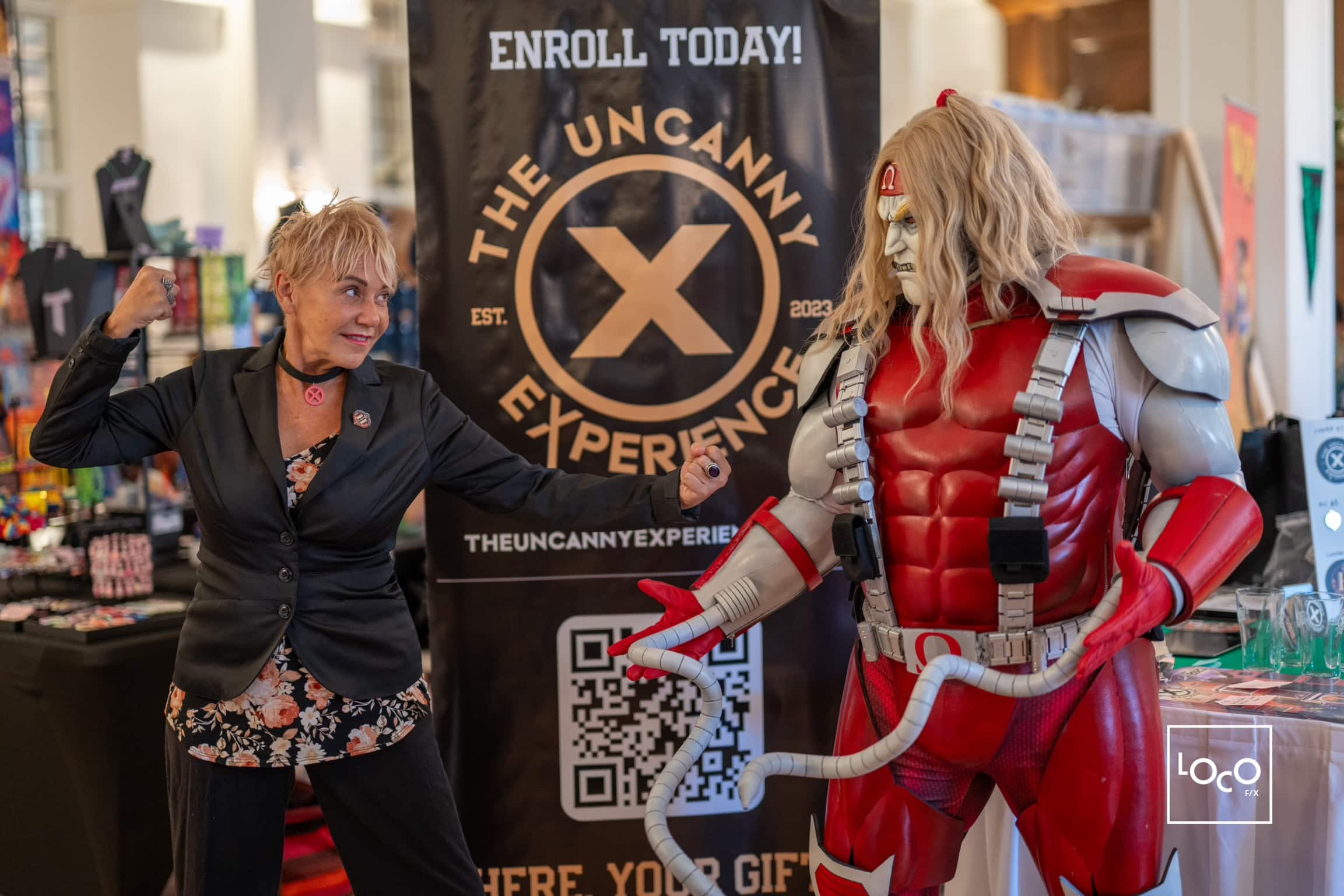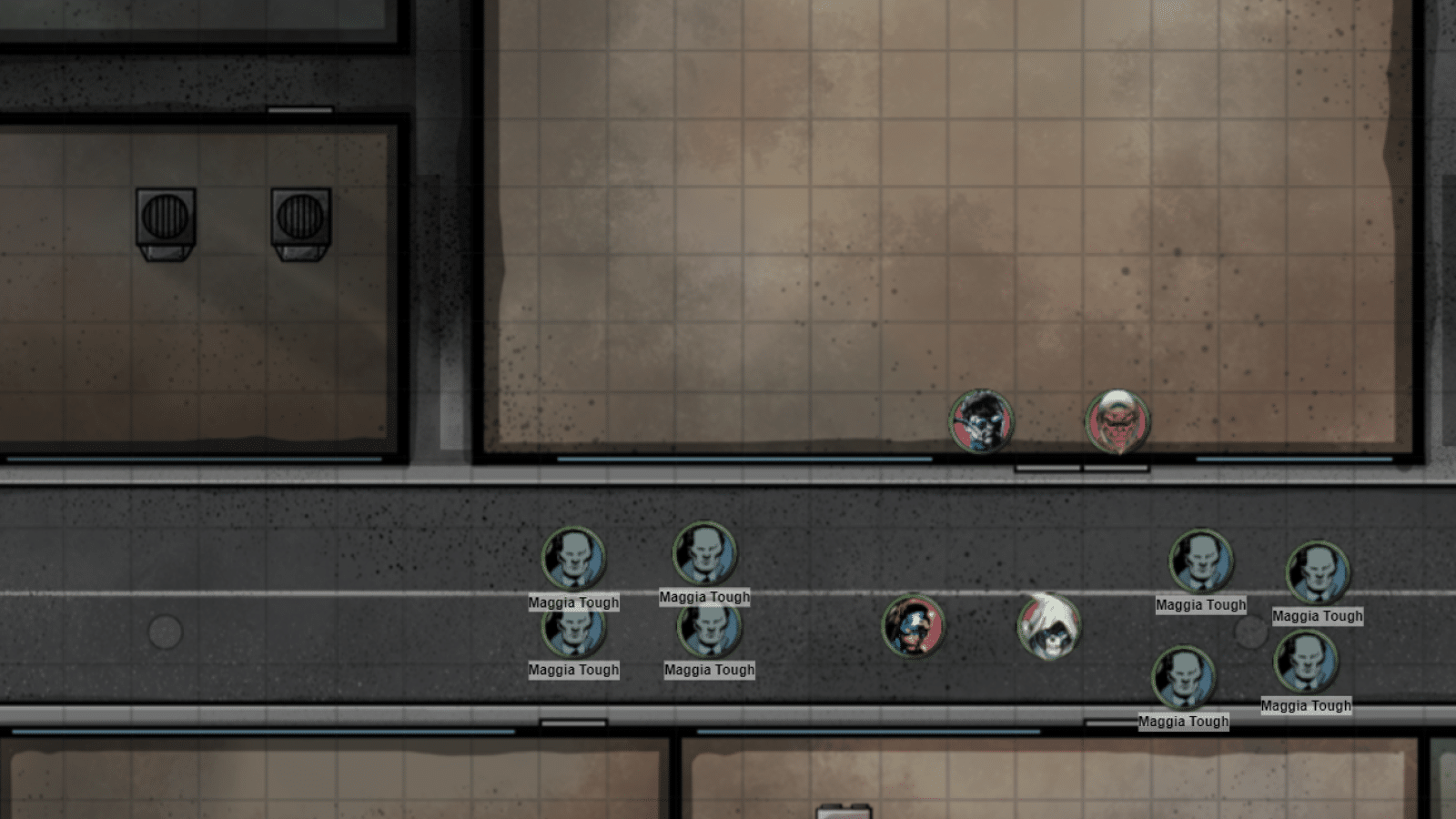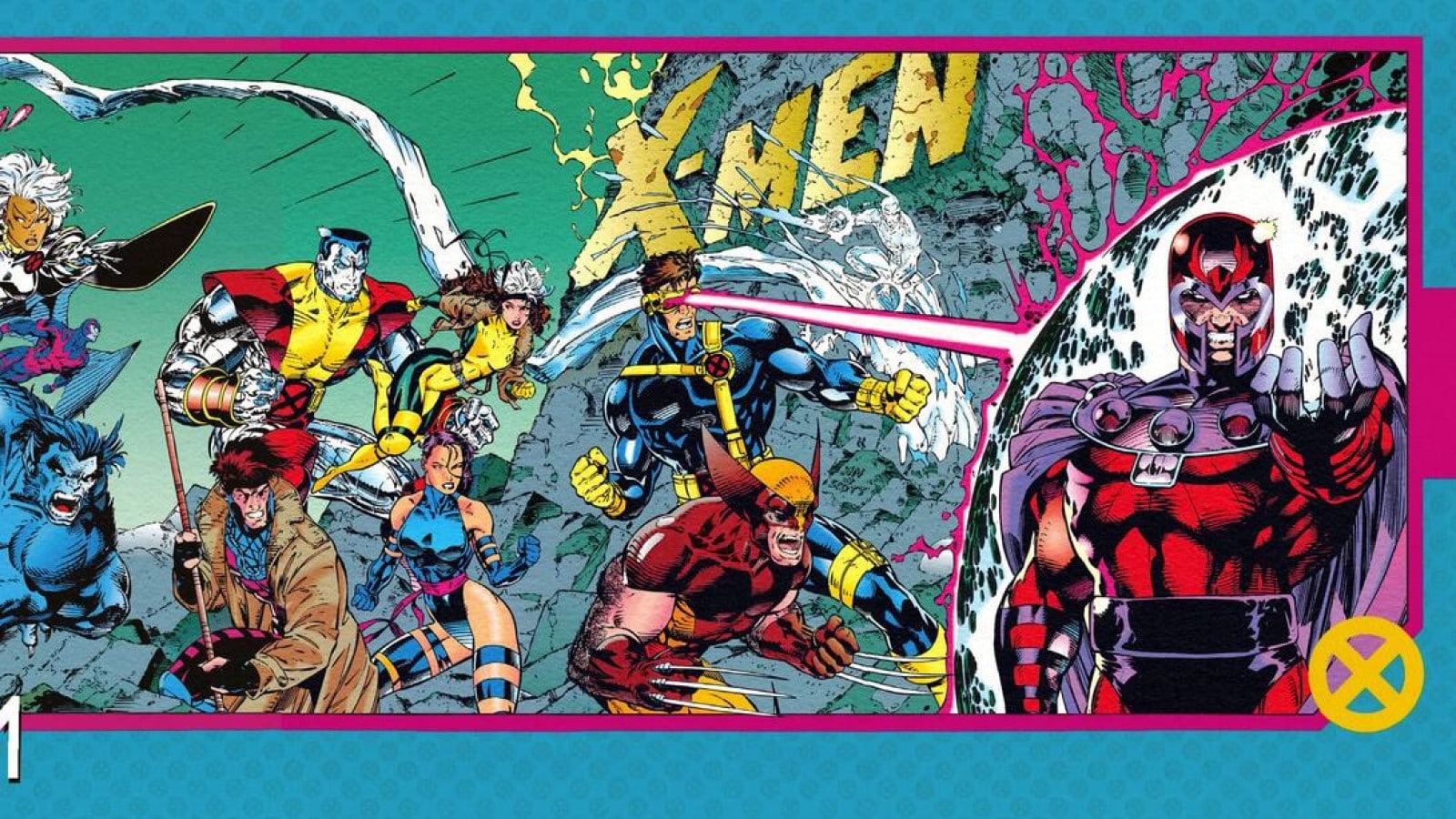When the Uncanny Experience was first announced, I was admittedly skeptical. Part comic book convention, part immersive fan experience, the idea of transforming the venerable Minneapolis Club in downtown Minneapolis into a de facto X-Mansion for a weekend, then inviting fans to come and not just buy merch and listen to creator panels, but enroll in classes, sing karaoke, drink themed cocktails, lie in Wolverine’s bed and stay overnight, sounded … like an experience, but could the organizers pull it off? I’ve helped organize and put on comic conventions in the Twin Cities metro area for years; the Minneapolis Club is no cheap venue, and guests like X-Men super writer Chris Claremont and X-Men: The Animated Series voice actors would have significant minimums the show would be on the hook for meeting. As a result, the ticket prices for attendees reflected that. Would enough fans travel to Minneapolis and pay those prices? Would the show collapse under the weight of expense and even happen? If it happened, would it deliver on what it promised?
Thankfully, my skepticism proved unfounded. While not a perfect event, the organizers put on a good show with a good eye for detail, the fans in attendance were numerous and enthusiastic (with fire code requirements limiting the number of attendees and helping make the event feel less crowded than it actually was), and the celebrity guests all seemed to be having a good time.
When I spoke with Chandler Poling, one of the organizers of the Uncanny Experience, he likened the event to the kinds of fan conventions we often associate with Star Trek or Power Rangers vs. a traditional comic book convention. That vibe definitely permeated the show. Cosplayers were abundant, and the general feeling was that everyone was there to celebrate the X-Men as a collection of characters, not just as the stars of an animated series or a series of films or best-selling comic books. The X-Men as a collective whole, rather than any specific iteration of them, were being celebrated.
That said, the show was definitely geared toward fans of the animated series (and its upcoming sequel, X-Men ’97), with voice actors Lenore Zann (Rogue), Alyson Court (Jubilee) and Cal Dodd (Wolverine), as well as producers Eric and Julia Lewald, director Larry Houston, and artist Dan Veesenmeyer in attendance, while numerous attendees cited the animated series as their gateway to the X-Men. Given the Uncanny Experience’s heavy tilt toward the X-Men’s animated adventures, I asked Chandler if he felt that X-Men ’97 getting bumped from its initial release date just a few weeks before the Experience helped or hurt the show. He said, “the fact that Marvel has pushed the series to 2024 only meant that attendees at this event had more anticipation to meet the actors and creators at the Uncanny Experience.”
The behind-the-scenes X-Men: The Animated Series creatives were on a panel Saturday morning, while they teamed up with the voice actors Sunday for a reunion panel. Among the interesting things I learned in those panels was that most of the people involved had no idea the series had maintained such a following after it went off the air until it landed on Disney+, which led to an upsurge in chatter among fans that reached the voice actors and creative team. Houston, a longtime animation vet who also worked on the “Pryde of the X-Men” pilot episode, revealed that Wolverine was Australian in that episode because executives believed “kids love Crocodile Dundee.” Whether on the panel, signing autographs and taking pictures, or mingling with fans at the Dazzler-led karaoke after party, all the X:TAS folks seemed absolutely delighted — and even a little amazed, at times — to be there receiving the attention they were getting.

Class is in session with Papa Chris. Photo by Loco F/X.
For me, the highlight of the show was getting a chance to meet Claremont and watch him put on a little show. As part of the Uncanny Experience’s immersive setting, Claremont was styled as a “visiting professor,” participating not in a traditional convention panel but presenting a class on mutant history. Claremont, wearing a waistcoat and Uncanny Experience letterman’s jacket and with all the gusto of his background in theater, sunk his teeth into the role, offering up an in-universe history of human/mutant relations in the X-Men universe that doubled as a treatise on his views and opinions about the themes and meaning of the X-Men.
Amid a few mild shots at the current X-Men status quo (ie “that island,” as he exclusively referred to Krakoa) and current creators’ workload (lamenting what he sees as an inability for writers to handle more than one book a month or tell a story in less than six parts), he explained that he views the defining difference between Magneto and Xavier not as one of methodology, as in the tired Malcolm X/MLK Jr. didactic, but as one between fear and hope, exclusion and inclusion, of their respective mindsets, not their relationship to violence. Interestingly, Claremont refers to Magneto exclusively as “Eric Lensherr” (a name the character was given after Claremont first left the series and which has since been further retconned) and Kitty Pryde as “Pryde.” He also mentioned that once upon a time, he tried to change the X-Men’s name to simply “the X” (to remove the ’60s-era male focus from the group and play up their unknown, mysterious quality) but ran afoul of the licensing department, laughingly admitting that you can’t trademark an “X.”
These keynote panels/classrooms were held in a large drawing room within the Minneapolis Club, decorated with fox-hunting wallpaper, enormous fireplaces, dark wood accents and heavy chandeliers. It was a very X-Mansion setting, but the acoustics were occasionally troublesome, given that the room was at least partially open to the hallway outside, across from the room where the vendors were set up. A heavy curtain hung over that opening, attempting to block out the sound, but when things got rowdy outside, it became harder to hear the panelists. Similarly, while the room was excellent for its vibes, the panelists were largely beholden to outside light for proper illumination; later in the day, as the sun inched behind the downtown skyscrapers or passed behind clouds, the guests at the head table often appeared in shadow (smaller “classrooms” held upstairs, next to Wolverine’s bedroom were less opulent but more conducive to sound and presentation).
While the Uncanny Experience was designed to be a more unique, immersive experience than a traditional con, it still had a dedicated vendor floor, where both local and out-of-state comic book dealers, shops and artists sold comics, prints and Funko Pops to attendees. Given the show’s slant toward the animated series, it was a much more merch-heavy vendor floor than a comic book one, with only four dealers dedicated to comic books on hand (one of whom being Unknown Comics, an out-of-state shop that provided the Uncanny Experience’s con-exclusive variant cover and was otherwise only selling their other store-exclusive X-Men variants). Bradley Huber, a local hobbyist who sells at various local shows around the Twin Cities as Go Big or Go Home Comics, told me he overall had a good show, selling more comics than he was expecting. But Eric Childs, the owner of Burnsville, Minnesota-based Mind’s Eye Comics, said it was definitely a show where he had more fun than he made money, but is enthusiastic for another Uncanny Experience, and now has a better idea of what to bring to catch attendees’ eyes (This is very much a me thing, but I was hoping to check at least one more Silver Age X-Men issue off my wishlist at the show, but alas, none of the dealers had any that I need at prices I could afford).
As to the future of the Uncanny Experience, plans are already afoot for a sequel, though Chandler was, not surprisingly, mum on details when I asked him, saying only that fans should sign up for their newsletter, where they break their news first. I also asked him about overall attendance, given the 500-attendee capacity limit the venue gave them at the start. He confirmed they hit that goal but added, “Having seen the venue in action and how attendees disperse throughout the mansion, I would have liked to have had even more students in the halls of the Xavier Institute.”

X-Men: The Animated Series producer Eric Lewald and actress Lenore Zann, who voiced Rogue. Photo by Loco F/X.
All in all, I can say that the Uncanny Experience was a one-of-a-kind experience, a comic con unlike any other I’ve attended. The immersive elements may not be for everyone, but it was hard not to get swept up in the enthusiasm from everyone there to simply celebrate a thing we all love, in whatever form we prefer or whatever means it was introduced to us. A few quibbles aside, I was also impressed with the work the whole organizing team did in making the event happen; from my perspective as both an attendee and someone who’s been on the other side of the con countless times, it was an exceedingly well-run show. I am looking forward to whatever experiences this team presents in the future.
Austin Gorton also reviews older issues of X-Men at the Real Gentlemen of Leisure website, co-hosts the A Very Special episode podcast, and likes Star Wars. He lives outside Minneapolis, where sometimes, it is not cold. Follow him @austingorton.bsky.social.






